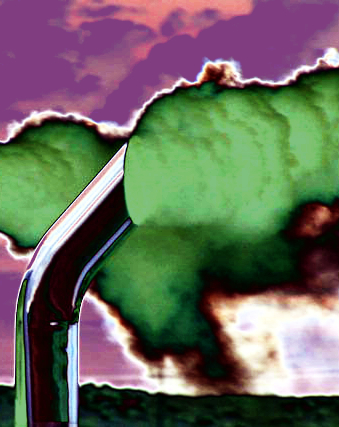Big fine for car cartel
 The European Union has accused major German car manufacturers of colluding to slow the development and rollout of car emission-control systems.
The European Union has accused major German car manufacturers of colluding to slow the development and rollout of car emission-control systems.
BMW, VW, Audi and Porsche have been fined around $1.3 billion after they avoided competing on technology to restrict pollution, the European Commission says.
Daimler engaged in the activity too, but avoided being fined as it was the one that revealed the cartel to the European Commission.
The companies were found to have agreed on the size of onboard tanks containing a urea solution known as AdBlue that is injected into the exhaust stream to limit pollution from diesel engines. They also colluded on the driving ranges that could be expected before a tank needed refilling, with a bigger tank enabling more pollution reduction.
The case marks the first time the European Commission has imposed collusion fines on companies for holding back the use of technical developments, rather than for the practice of price fixing.
The companies had the technology to reduce harmful emissions below legal limits, but they resisted competition and denied consumers the chance to buy lower-polluting cars.
“Factories compete with one another also when it comes to reducing carbon emissions from the cars,” EU antitrust chief Margrethe Vestager said.
“Manufacturers deliberately avoided to compete on cleaning better than what was required by EU emission standards. And they did so despite the relevant technology being available.”
She said this made the practice illegal.
“So today's decision is about how legitimate technical cooperation went wrong. And we do not tolerate it when companies collude,” Ms Vestager said.
EU rules allow cooperation between companies only when it leads to efficiency gains, such as the faster introduction of new technologies.
“But the dividing line is clear: Companies must not coordinate their behavior to limit the full potential of any type of technology,” she said.
Volkswagen pointed out that the investigation found several other forms of cooperation under review were not illegal.
“The (EU) Commission is breaking new legal ground with this decision, because it is the first time it has prosecuted technical cooperation as an antitrust violation,” the company said in a statement.
“It is also imposing fines even though the contents of the talks were never implemented and customers were therefore never harmed.”
Volkswagen said the tank sizes that the carmakers produced were “two to three times” bigger than discussed in the talks, and that it is considering an appeal to the European Court of Justice.
BMW said its discussions on the AdBlue tanks had “no influence whatsoever on the company’s product decisions”.
The case is not linked to the “dieselgate” emissions-cheating scandal of the past decade, which has cost Volkswagen about 30 billion euros in fines, civil settlements and recalls.







 Print
Print